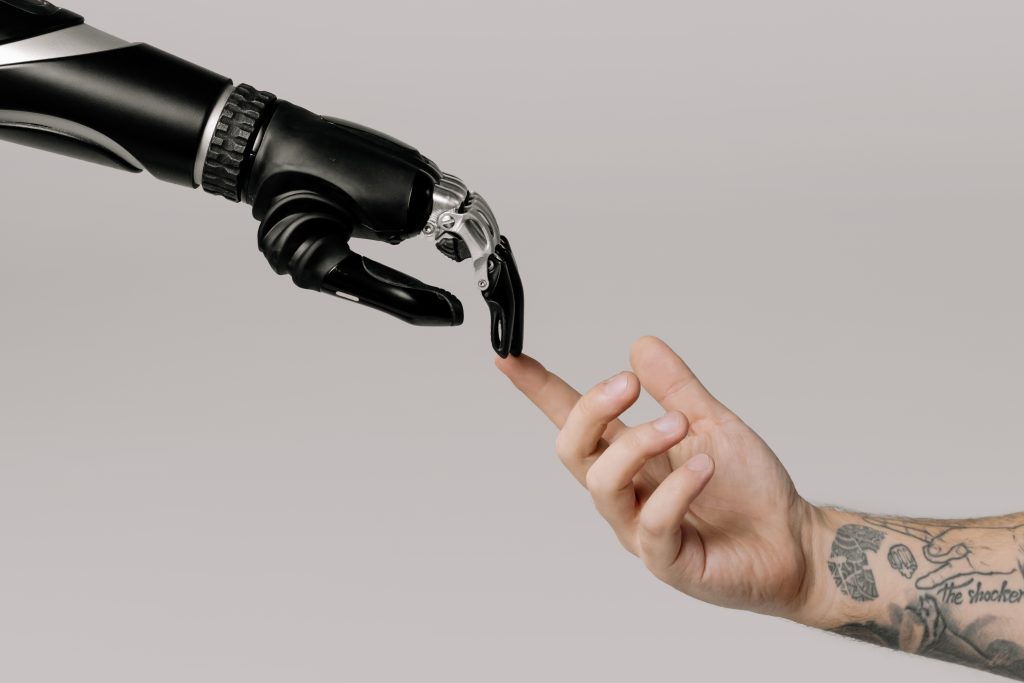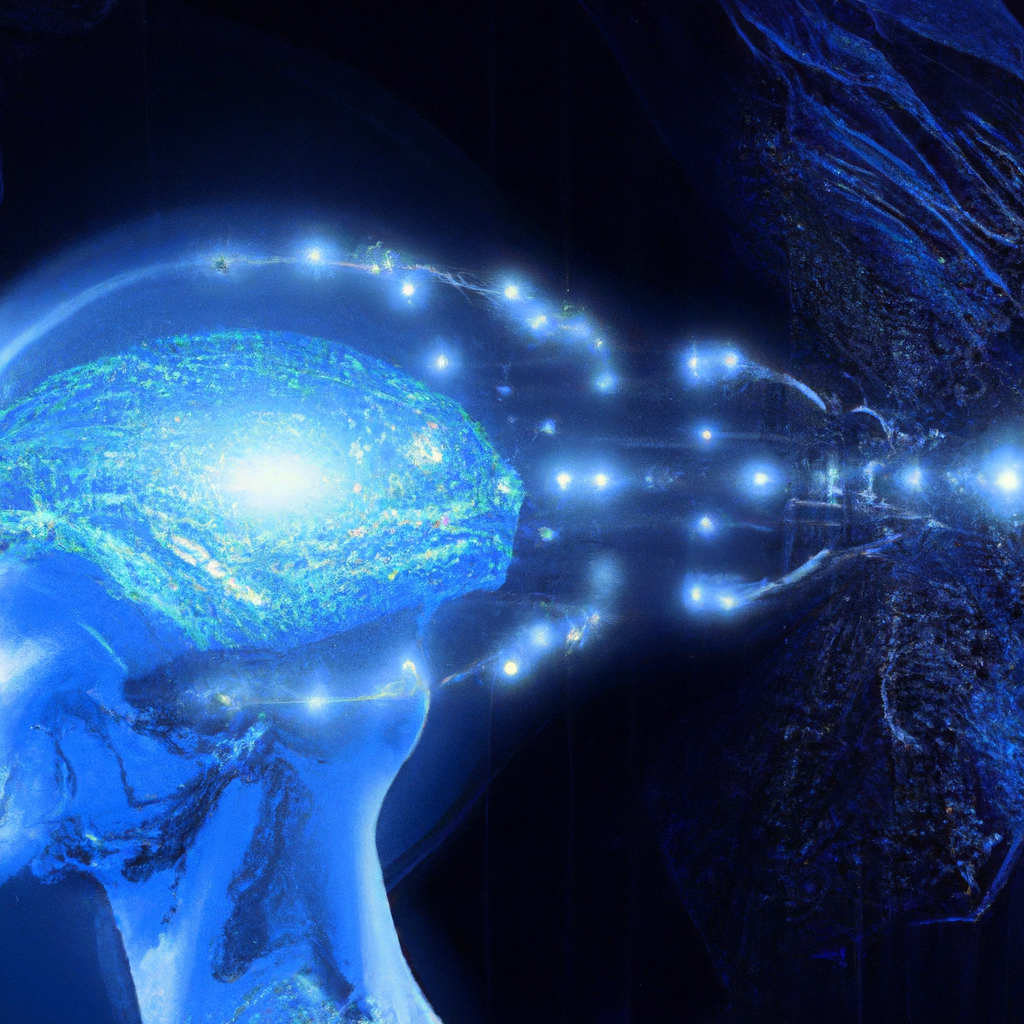AI, or artificial intelligence, has become an increasingly important field with a wide range of applications. From enhancing our daily lives to revolutionizing industries, AI has proved itself to be a powerful tool. In this article, we will explore the various applications of AI and how it has transformed the way we live, work, and interact with technology. Whether it’s in healthcare, finance, or even entertainment, AI is playing a crucial role in shaping our future. So, let’s dive into the world of AI and discover its incredible applications!
Healthcare
Robotic surgery
In recent years, there has been a rapid advancement in the use of artificial intelligence (AI) in the field of healthcare. One significant application is the use of AI in robotic surgery. Robotic surgery combines the skills of a human surgeon with the precision and efficiency of a robotic system. AI-powered robots can assist surgeons in performing complex surgical procedures with greater accuracy and improved patient outcomes. These robots are equipped with advanced machine learning algorithms that enable them to analyze real-time data and make split-second decisions during surgery. Robotic surgery not only reduces the risk of human error but also minimizes the invasiveness of procedures, resulting in shorter recovery times for patients.
Virtual nursing assistants
Another groundbreaking application of AI in healthcare is the development of virtual nursing assistants. These AI-powered bots are designed to provide personalized care and support to patients. Virtual nursing assistants can assist with medication management, monitor vital signs, and answer patients’ questions about their health conditions. These virtual assistants are trained to recognize patterns and provide appropriate responses based on the data they collect. They can also be integrated with other healthcare systems, such as electronic medical records, to ensure seamless communication and coordination among healthcare providers. Virtual nursing assistants have the potential to revolutionize patient care by increasing access to healthcare services and improving patient outcomes.
Disease diagnosis
AI has shown immense potential in the field of disease diagnosis. With the ability to analyze vast amounts of medical data and identify patterns that may be missed by human physicians, AI algorithms can help detect diseases at an early stage, leading to more effective treatment outcomes. Machine learning algorithms can be trained on large datasets of medical records, including imaging scans, lab results, and patient symptoms, to develop accurate disease diagnosis models. These models can then be used to identify subtle disease indicators and provide physicians with evidence-based recommendations for further testing or treatment. AI-driven disease diagnosis systems have the potential to improve the efficiency and accuracy of diagnoses, ultimately saving lives and reducing healthcare costs.
Drug discovery
The process of discovering and developing new drugs is a time-consuming and expensive task. AI has the potential to streamline and accelerate this process by assisting researchers in identifying potential drug candidates. Machine learning algorithms can analyze large databases of chemical compounds and predict their efficacy and safety profiles. These algorithms can also identify molecular targets and pathways that may be exploited for therapeutic purposes. AI-powered drug discovery can significantly reduce the time and resources required for drug development, potentially leading to more rapid and cost-effective treatments for various diseases. Additionally, AI can aid in the repurposing of existing drugs for new indications, further expanding the available treatment options.
Finance
Fraud detection
Fraud detection is a critical concern in financial institutions, and AI has emerged as a powerful tool in combating fraudulent activities. AI algorithms can analyze large volumes of financial data in real-time, rapidly identifying suspicious patterns and anomalies. By examining transaction histories, customer behavior, and other relevant data, AI-powered fraud detection systems can accurately flag potential fraud cases and alert financial institutions for further investigation. These systems can also continuously learn and adapt to evolving fraud patterns, making them increasingly effective over time. With the help of AI, financial institutions can mitigate the risks associated with fraud, protect their customers’ assets, and maintain the integrity of the global financial system.
Algorithmic trading
AI has revolutionized the field of algorithmic trading, enabling financial institutions to make data-driven investment decisions in real-time. AI algorithms can analyze vast amounts of financial data, including market trends, historical prices, and news sentiment, to identify patterns and predict market behavior. These algorithms can then execute trades automatically, based on predefined rules and parameters. By removing human emotion and bias from the trading process, AI-powered algorithmic trading systems can maximize investment returns and minimize risks. These systems can also adapt to changing market conditions and adjust trading strategies accordingly. Algorithmic trading has become an essential tool for institutional investors and has significantly contributed to the overall efficiency and liquidity of financial markets.
Customer service
AI technology has transformed customer service operations in the finance industry. AI-powered virtual assistants, such as chatbots, can provide customers with instant support and personalized assistance. These virtual assistants can handle routine customer inquiries, help with account management, and provide information about financial products and services. AI-driven chatbots can analyze customer requests, understand natural language, and provide relevant and accurate responses. They can also learn from customer interactions and continuously improve their performance over time. By automating customer service operations, financial institutions can reduce costs, improve response times, and enhance customer satisfaction.
Risk assessment
Risk assessment plays a crucial role in the finance industry, where accurate evaluation of potential risks is essential for making informed decisions. AI algorithms can analyze historical data, market trends, and other relevant factors to assess the risk associated with various financial products and investments. Machine learning models can identify patterns and correlations in data, enabling financial institutions to predict and mitigate potential risks. AI-powered risk assessment systems can provide real-time insights into market conditions, detect early warning signs of potential financial crises, and help financial institutions develop effective risk management strategies. By leveraging AI technology, financial institutions can make more informed decisions, reduce exposure to risks, and ensure the stability and resilience of the financial system.

Education
Personalized learning
AI has the potential to revolutionize education by enabling personalized learning experiences. AI algorithms can analyze students’ learning data, including their strengths, weaknesses, and learning styles, to create customized learning paths. These algorithms can adapt learning materials and activities to meet individual students’ needs and preferences, promoting engagement and accelerating learning outcomes. Personalized learning powered by AI can also provide real-time feedback and support, allowing students to track their progress and address areas of difficulty effectively. By tailoring education to individual students, AI-powered personalized learning systems can enhance educational outcomes, reduce achievement gaps, and improve overall learning experiences.
Virtual tutors
With the help of AI, virtual tutors can provide personalized and adaptive learning experiences to students. These AI-powered tutoring systems can deliver individualized instruction, assess students’ knowledge levels, and identify areas for improvement. Virtual tutors can adapt their teaching methods, pace, and content to meet students’ unique needs, ensuring an optimal learning experience. AI algorithms can also analyze students’ performance data to provide real-time feedback and recommendations for further study. Virtual tutors have the potential to supplement traditional classroom instruction, allowing students to receive personalized support and guidance outside of school hours. By leveraging AI technology, virtual tutors can enhance learning outcomes and empower students to reach their full academic potential.
Automated grading
AI has the capability to automate grading processes, saving teachers valuable time and effort. AI-powered grading systems can analyze students’ assignments, exams, and other assessments, providing objective and consistent evaluations. These systems can assess a wide range of subjects and formats, including multiple-choice questions, essays, and even complex problems. AI algorithms can compare students’ responses to pre-determined answers or rubrics, taking into account various factors such as grammar, logic, and creativity. Automated grading can free up teachers’ time, allowing them to focus on providing personalized feedback and instructional support to students. By automating grading processes, AI can improve efficiency, reduce subjectivity, and enhance the overall educational experience.
Adaptive assessments
AI technology can transform the way assessments are conducted in education. Adaptive assessments leverage AI algorithms to tailor testing experiences to individual students’ abilities and knowledge levels. These assessments can dynamically adjust the difficulty and content of questions based on students’ responses, providing more accurate and targeted assessments of their skills and understanding. Adaptive assessments can help identify students’ strengths and weaknesses, inform instructional decisions, and guide personalized learning paths. By leveraging AI-powered adaptive assessments, educators can gain valuable insights into students’ progress and make data-driven decisions to optimize learning experiences.
Transportation
Self-driving cars
One of the most highly anticipated applications of AI in transportation is self-driving cars. AI algorithms and sensors enable autonomous vehicles to perceive and navigate their surroundings in real-time. These cars can detect and interpret traffic signs, road conditions, and the behavior of other vehicles, pedestrians, and cyclists. By analyzing data from multiple sensors, including cameras, radar, and LiDAR, AI-powered self-driving cars can make informed decisions and navigate complex traffic scenarios. Self-driving cars have the potential to significantly reduce the number of accidents caused by human error, increase transportation efficiency, and improve overall road safety.
Traffic management
AI technology can revolutionize traffic management systems, enabling more efficient and sustainable transportation networks. AI algorithms can analyze real-time traffic data from various sources, such as GPS devices, cameras, and connected vehicles, to predict traffic patterns and congestion. This information can be used to optimize traffic signal timings, reroute vehicles, and balance traffic flow across different routes. AI-driven traffic management systems can also integrate data from public transportation networks, enabling better coordination and synchronization of bus and train schedules. By leveraging AI technology, transportation authorities can improve traffic flow, reduce travel times, and minimize carbon emissions, leading to more sustainable and livable cities.
Predictive maintenance
AI can assist in maintaining transportation infrastructure by predicting and preventing equipment failures and breakdowns. Machine learning algorithms can analyze sensor data from vehicles, trains, airplanes, and other modes of transportation to identify patterns and indicators of potential malfunctions. By monitoring equipment conditions in real-time, AI-powered predictive maintenance systems can detect early warning signs of failures and proactively schedule repairs or maintenance. This proactive approach can reduce downtime, minimize maintenance costs, and ensure the safety and reliability of transportation systems. Predictive maintenance powered by AI can optimize the use of resources and avoid unexpected disruptions, improving the overall efficiency and effectiveness of transportation operations.
Autonomous drones
AI-powered autonomous drones have the potential to revolutionize various aspects of transportation, from package delivery to surveillance and inspection. These drones can navigate through complex environments, avoiding obstacles and optimizing flight paths in real-time. AI algorithms can process data from onboard sensors, such as cameras and LiDAR, to identify and track objects of interest. Autonomous drones can be used for tasks such as delivering packages, monitoring traffic conditions, inspecting infrastructure, and conducting search and rescue operations. By leveraging AI technology, autonomous drones can enhance the speed, efficiency, and safety of transportation operations, opening up new possibilities for industries and communities.

Manufacturing
Robotics and automation
AI-powered robotics and automation have transformed the manufacturing industry by increasing productivity, efficiency, and flexibility. Robotic systems equipped with AI algorithms can perform repetitive and monotonous tasks with precision and speed, reducing human errors and enhancing manufacturing quality. These robots can also adapt to changing production requirements, allowing manufacturers to quickly and easily reconfigure production lines. By combining AI with robotics, manufacturers can achieve higher levels of automation and optimization, resulting in improved operational efficiency and reduced costs.
Quality control
AI technology has significantly improved quality control processes in manufacturing. Machine learning algorithms can analyze vast amounts of data from sensors, cameras, and other sources to identify defects and anomalies in the manufacturing process. These algorithms can learn from historical data and continuous feedback, improving their accuracy over time. By detecting and correcting defects in real-time, AI-powered quality control systems can minimize waste and rework, improve product quality, and ensure compliance with industry standards. Quality control powered by AI enables manufacturers to deliver products of consistently high quality, enhancing customer satisfaction and brand reputation.
Supply chain optimization
Effective supply chain management is critical for manufacturers to meet customer demand while minimizing costs and inventory levels. AI technology can optimize various aspects of the supply chain, from demand forecasting to inventory management and distribution planning. AI algorithms can analyze historical sales data, market trends, and other relevant factors to accurately predict demand and optimize inventory levels. These algorithms can also consider various constraints and variables, such as transportation costs and lead times, to develop optimal distribution plans. By leveraging AI, manufacturers can achieve higher levels of supply chain efficiency, reduce costs, and improve customer satisfaction.
Predictive maintenance
Predictive maintenance is a vital application of AI in the manufacturing industry. By analyzing sensor data from equipment and machinery, AI algorithms can predict when maintenance or repairs are needed, eliminating the need for scheduled maintenance or unexpected breakdowns. These algorithms can detect early warning signs of failures and notify maintenance teams, allowing them to intervene before major disruptions occur. Predictive maintenance powered by AI can minimize downtime, reduce maintenance costs, and extend the lifespan of equipment, leading to improved operational efficiency and higher productivity.
Retail
Inventory management
AI-powered inventory management systems can optimize stock levels, reduce carrying costs, and minimize stockouts. By analyzing historical sales data, market trends, and other relevant factors, AI algorithms can accurately forecast demand and optimize inventory replenishment strategies. These algorithms can consider various factors, such as lead times, supplier performance, and customer behavior, to ensure that the right products are available at the right time and in the right quantities. AI-driven inventory management systems can also identify slow-moving products, analyze customer sentiment, and recommend pricing strategies to improve inventory turnover and profitability.
Customer experience
AI technology has transformed the retail industry by enhancing the customer experience at every touchpoint. AI-powered chatbots and virtual assistants can provide instant support and personalized recommendations to customers, improving online and offline shopping experiences. These virtual assistants can understand natural language, analyze purchase history, and respond to customer inquiries in a conversational manner. Additionally, AI algorithms can analyze customer data to provide personalized product recommendations, promotions, and discounts, increasing customer engagement and loyalty. By leveraging AI, retailers can offer tailored experiences that meet individual customer needs, leading to increased sales and customer satisfaction.
Pricing optimization
Optimizing pricing strategies is a complex and dynamic task in the retail industry. AI algorithms can analyze historical sales data, competitor pricing, market trends, and other relevant factors to develop optimal pricing models. These algorithms can consider multiple variables, such as demand elasticity, product costs, and customer preferences, to dynamically adjust prices and maximize profitability. AI-powered pricing optimization systems can also perform real-time price monitoring and recommend competitive pricing strategies. By leveraging AI, retailers can optimize pricing decisions, improve profit margins, and respond rapidly to market changes and customer behavior.
Chatbots and virtual assistants
AI-powered chatbots and virtual assistants have revolutionized customer service in the retail industry. These virtual assistants can handle routine customer inquiries, assist with order tracking and returns, and provide product recommendations. By understanding natural language and analyzing customer data, AI-driven chatbots can deliver personalized and accurate responses. These virtual assistants can also learn from customer interactions and continuously improve their performance over time. By automating customer support operations, retailers can reduce costs, improve response times, and provide a seamless omnichannel shopping experience.

Cybersecurity
Threat detection
AI technology plays a vital role in detecting and mitigating cyber threats. AI algorithms can analyze large volumes of data, such as network traffic logs, system logs, and user behavior, to identify patterns and indicators of potential cyberattacks. These algorithms can detect known threats based on predefined rules and also identify emerging threats by recognizing abnormal or suspicious patterns. By leveraging AI, cybersecurity systems can promptly detect and respond to threats, minimizing the impact of cyberattacks and protecting sensitive data and systems.
Anomaly detection
AI algorithms can detect anomalies in system behavior, which may indicate potential security breaches or vulnerabilities. By analyzing historical data and continuously monitoring system performance, AI-powered anomaly detection systems can establish baselines of normal behavior and detect deviations from these baselines. These systems can identify unusual network traffic, atypical user access patterns, and abnormal resource utilization, alerting cybersecurity teams to potential security incidents. Anomaly detection powered by AI enables early detection and rapid response to security threats, reducing the risk of successful cyberattacks.
Automated incident response
AI technology can automate incident response processes, improving the efficiency and effectiveness of cybersecurity operations. AI-powered incident response systems can analyze security alerts, assess their severity, and initiate appropriate response actions automatically. These systems can correlate and prioritize alerts based on their context and potential impact, reducing false positives and minimizing response times. By automating incident response, cybersecurity teams can focus on investigating complex threats and vulnerabilities, rather than dealing with routine and repetitive tasks.
User behavior analysis
AI algorithms can analyze user behavior to detect potential insider threats, unauthorized access attempts, and other security risks. By monitoring and analyzing user activity logs, AI-powered user behavior analysis systems can establish normal behavioral patterns for individual users or user groups. These systems can then identify deviations from these patterns, flagging suspicious activities that may indicate security breaches or policy violations. User behavior analysis powered by AI enables proactive threat detection and supports effective risk management strategies, enhancing the overall security posture of organizations.
Marketing and Advertising
Targeted advertising
AI-powered targeted advertising enables marketers to reach the right audience with personalized and relevant messages. By analyzing vast amounts of customer data, including demographics, purchase history, and online behavior, AI algorithms can segment audiences and develop individualized marketing campaigns. These algorithms can identify patterns and correlations in data, enabling marketers to predict customer preferences and optimize advertising strategies. Targeted advertising powered by AI can increase the effectiveness and efficiency of marketing campaigns, maximizing return on investment and enhancing customer engagement.
Predictive analytics
AI algorithms can analyze historical data and identify patterns that can be used to predict future outcomes and trends. In marketing and advertising, predictive analytics powered by AI can enable marketers to make data-driven decisions and develop strategies that optimize customer acquisition, retention, and overall marketing performance. These algorithms can predict customer lifetime value, churn rates, response rates to marketing campaigns, and other key metrics. Predictive analytics powered by AI can provide insights into customer behavior, facilitate personalized marketing approaches, and improve marketing campaign targeting and effectiveness.
Content creation
AI technology is revolutionizing content creation in marketing and advertising. Natural language generation algorithms can analyze structured and unstructured data and automatically generate human-like text, such as blog posts, social media updates, and product descriptions. These algorithms can understand the context, language nuances, and style requirements, allowing them to create content that resonates with target audiences. AI-powered content creation can save time and effort for marketers, enabling them to scale their content strategies and provide personalized experiences to customers.
Chatbots for customer interaction
AI-powered chatbots have become an essential tool for customer interaction in marketing and advertising. These virtual assistants can engage with customers in real-time, answer questions, provide product recommendations, and assist with purchases. Powered by natural language processing and machine learning algorithms, chatbots can understand customer inquiries and provide personalized responses based on their preferences and purchase history. Chatbots can handle multiple conversations simultaneously, 24/7, ensuring prompt and accurate customer support. By leveraging chatbots, marketers can enhance the customer experience, improve engagement, and increase conversions.

Entertainment
Content recommendation
AI algorithms have transformed the way entertainment content is recommended to consumers. Platforms such as streaming services and social media use AI-powered recommendation systems to provide personalized content suggestions based on users’ preferences, viewing history, and real-time behavior. These algorithms can analyze vast amounts of data, including user interactions, ratings, and social connections, to predict consumer preferences and optimize content delivery. AI-powered content recommendation enables users to discover new shows, movies, music, and other forms of entertainment, enhancing the overall user experience and increasing engagement.
Voice and facial recognition
AI-powered voice and facial recognition technology have revolutionized entertainment experiences. Voice recognition algorithms can understand spoken language and enable users to interact with devices and applications using natural language commands. Facial recognition algorithms can identify and authenticate individuals, allowing for personalized experiences and secure access to entertainment content. These technologies have been widely adopted in smart devices, games, virtual assistants, and video streaming platforms, enhancing user convenience, accessibility, and security.
Virtual reality and augmented reality
AI plays a crucial role in virtual reality (VR) and augmented reality (AR) technologies, creating immersive and interactive entertainment experiences. AI algorithms can analyze real-world environments, process sensory inputs, and generate realistic virtual or augmented content. VR and AR applications powered by AI have been used in gaming, simulations, training, and other forms of interactive entertainment. These technologies can transport users to virtual worlds, overlay digital information on the real world, and create highly engaging and immersive experiences.
Computer-generated imagery (CGI)
AI algorithms have significantly advanced the field of computer-generated imagery (CGI), enabling the creation of lifelike and visually stunning visual effects in movies, television shows, and video games. AI technology can generate realistic textures, lighting effects, animations, and simulations, allowing for the creation of virtual worlds that blur the line between reality and fiction. AI-powered CGI tools have streamlined the production process, reducing costs and time requirements, and have enabled filmmakers and game developers to bring their creative visions to life with unprecedented realism.
Customer Service
Chatbots and virtual assistants
AI-powered chatbots and virtual assistants have transformed customer service operations in various industries, including retail, finance, and healthcare. These virtual assistants can assist customers with common inquiries, provide product recommendations, and guide them through complex processes. Equipped with natural language processing and machine learning algorithms, chatbots can understand and respond to customer inquiries in a conversational manner. Virtual assistants can be available 24/7, ensuring prompt and consistent customer support. By leveraging AI-powered chatbots and virtual assistants, companies can improve customer satisfaction, reduce response times, and streamline customer service operations.
Conversational AI
Conversational AI enables companies to engage with customers through natural language interfaces, providing a human-like conversational experience. AI algorithms can understand and interpret the meaning and context of user queries, enabling human-like conversations. Conversational AI can be integrated into various platforms, such as messaging apps, websites, and voice assistants, allowing customers to interact with companies in their preferred channels. By leveraging conversational AI, companies can provide personalized, efficient, and scalable customer service experiences, enhancing customer engagement and loyalty.
Sentiment analysis
AI-powered sentiment analysis enables companies to analyze and understand customer sentiment and emotions based on their communications and interactions. Natural language processing algorithms can interpret customer feedback, reviews, social media posts, and other textual data to gauge customer sentiment and identify trends and patterns. Sentiment analysis powered by AI enables companies to proactively address customer concerns, improve products and services, and monitor brand reputation. By understanding customer sentiment, companies can make data-driven decisions and deliver better customer experiences.
Customer support automation
AI technology enables the automation of various customer support tasks, improving efficiency and reducing costs. AI-powered systems can automatically handle common customer inquiries, such as order tracking, password reset, or account inquiries, without the need for human intervention. These systems can analyze and understand customer requests, search for relevant information, and provide accurate and timely responses. Customer support automation powered by AI can free up human agents to focus on more complex and high-value customer interactions, leading to improved productivity and customer satisfaction.










